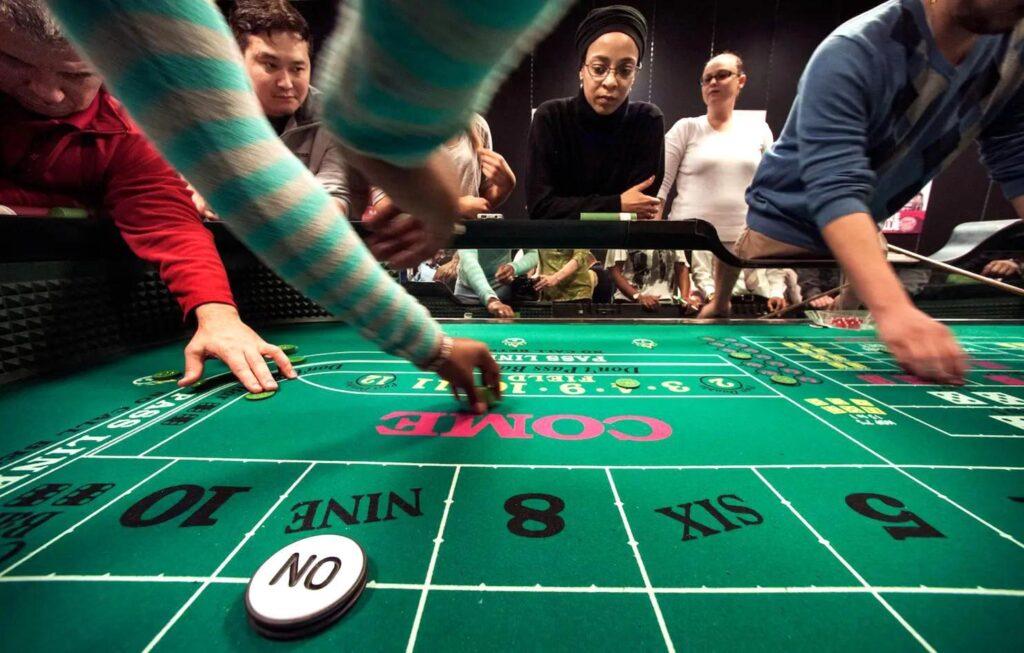The exciting world of tournament poker has changed dramatically with the advent of online platforms. Whether you’re a seasoned pro or an aspiring enthusiast, success at online events requires a combination of skills, strategy, and understanding of the digital realm. Here we uncover some of the most effective strategies for succeeding in online poker tournaments.
Online poker tournaments are competitions where players from all over the world can compete against each other over the Internet to win prizes, usually in the form of cash. These tournaments can range from free entry events (often referred to as “freerolls”) to tournaments with buy-ins ranging from a few cents to thousands of dollars.

Understanding the Online Poker Landscape
The digital realm of poker is very different from its physical counterpart. Players need to adapt to the fast pace, the nuances of the software, and the lack of physical cues.
Adapting to the pace: Online poker tournaments move quickly. The blinds rise faster and decisions need to be made within a strict time frame. It is imperative to remain vigilant and make quick but informed decisions.
Mastering the software: Familiarize yourself with the interface of the platform, from setting up hotkeys to understanding the intricacies of the software. This can give you a tangible advantage over competitors who can fumble at critical moments.
Varieties of poker competitions
Here are the most famous types of online poker competitions:
Freezeout Competitions: This is the most standard type of poker competition. Each player starts with a set amount of chips, and when they run out, they run out. There are no rebuys or addons.
- Rebuy Tournaments: In these tournaments, players have the option to purchase additional chips for a specified period at the start of the tournament. At the end of the rebuy period, players cannot buy more chips.
- Additional tournaments: similar to rebuy tournaments, but at the end of the rebuy period, players have one opportunity to add a certain number of chips to their stack for an additional fee.
- Bounty/Knockout Tournaments: Each player has a bounty on their head. When you knock out a player, you receive their reward. In progressive knockout tournaments (PKOs), some of the award goes to your head, making you a bigger target as you knock out more players.
- Satellite tournaments: Players do not play for a cash prize, but for participation in a larger and more expensive tournament. That’s how many players qualify for major tournaments like the World Series of Poker (WSOP) without paying the full entry fee.
- Turbo and Hyper-Turbo: In these tournaments, the blinds increase much faster. In turbo the blinds usually increase every 3-5 minutes, while in hyper turbo they can increase every 1-3 minutes.
Improve your poker strategy
As the stakes go up, so does your gameplay. Here are some key strategies:
Choice of starting hands. Be picky about the hands you play. While it’s tempting to dive into every pot, a tight-aggressive strategy can pay off in the long run.
Positional Understanding: Understanding when to act in a hand is critical. Being in a “late” position, you can get valuable information about the actions of your opponents, helping you develop your strategy.
Bankroll Management: Always be mindful of your bankroll. Setting limits and sticking to them can ensure a long game and reduce the risk of significant losses.
Reading digital “cues”
Even though online events lack the physical tells that are present in live games, there are still patterns and habits that should be followed.
Bet Patterns: Keep track of how your opponents are betting. Are they constantly aggressive or only raised with strong hands? Recognizing these patterns can provide insight into their potential hands.
Reaction Time: The time taken by the opponent to act, while not reliable, can sometimes give away the strength of his hand. Quick calls can indicate a strong hand, while delays can indicate uncertainty.
Adopting advanced tactics
For those looking to improve their game, consider integrating these advanced tactics:
Blind Stealing: When in late position, if no players have entered the pot, consider raising to steal the blinds. This is a risky move with high rewards, but if done with care, it can add valuable chips to your stack.
Floating on the Flop: This involves calling an opponent’s bet post-flop with the intention of taking the pot down on a later street. This is a tactic used against players who often make continuation bets.
Squeeze Play: When a player raises and another calls, re-raise (or squeeze) to put pressure on both players. This is a strategic move to win the pot without even seeing the flop.

Management of mental and physical health
Finally, excellence in online poker tournaments goes beyond mastering the gameplay. This also includes:
Mind Control: Poker can be an emotional game. Maintaining a calm, analytical demeanor even under pressure can go a long way. Meditation and mental exercises can help.
Physical Health: Hours of online play can strain your eyes and back. Regular breaks, ergonomic settings and proper lighting will make the gaming process long and comfortable.
In conclusion, success in online poker tournaments depends on a combination of strategic play, understanding of the digital platform, and strong mental and physical well-being. As the world of online poker continues to expand, armed with these strategies, you can pave the way for consistent wins and significant rewards.
